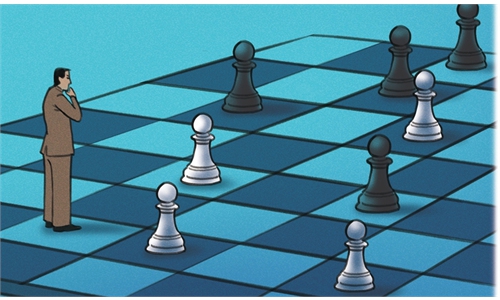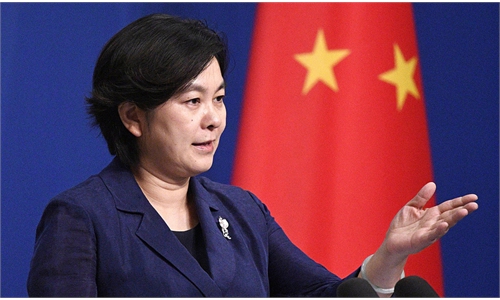
View of Vilnius, capital of Lithuania Photo: VCG
China said on Tuesday that it would recall its ambassador to Lithuania and demanded the country recall its top envoy from China. This marks a new level of the worsening ties between China and Lithuania, and it is Lithuania that should take the blame.
It has been more than half a year since bilateral relations soured. During this time, Lithuania kept standing on the anti-China forefront, eventually leading to China's decision to recall its ambassador.
Lithuania's ruling coalition - the Homeland Union-Lithuanian Christian Democrats - has been challenging China's bottom line by infringing upon China's core interests concerning the island of Taiwan. In November last year, the new ruling coalition agreed to commit the incoming government to support "those fighting for freedom" in Taiwan.
In March, Lithuania said it would open a trade "representative office" this year in Taiwan. A few days later, some pro-Taiwan politicians and scholars established the Lithuania-Taiwan Forum to promote relations with Taiwan. Its members include Economic Minister Ausrine Armonaite, Deputy Foreign Minister Mantas Adomenas, and Mayor of Vilnius Remigijus Simasius.
Lithuania has also gone far in other China-related matters. In late March, it joined 13 countries, including the US, to release a joint statement that questioned the WHO-convened COVID-19 origins study, accused China of not being transparent, and called for another investigation. In May, the Lithuanian parliament passed a motion condemning China for "genocide" against Uygur Muslims. The country even announced to withdraw from the 17+1 China-Central and Eastern European countries cooperation mechanism and attempted to incite other members to quit.
The most direct reason that China recalled its ambassador is Lithuania's plan to open a trade representative office in Taiwan and allow Taiwan authorities to open a "representative office" under the name of "Taiwan." Media reported it in March, and the foreign ministry of Lithuania confirmed it in July. But China only recalled its ambassador now, as it tried to negotiate with Lithuanian authorities and bring them back on the right track. However, Lithuania holds on obstinately to its wrong path.
The internal factor of Lithuania's anti-China crusade is the party change within the country. The ruling Homeland Union-Lithuanian Christian Democrats, a center-right political party, holds particular zeal toward the neoliberal ideology endorsed by the Western world. Since the party change last year, the Lithuanian government led by the coalition altered the course of the pragmatic foreign policy adopted by the previous center-left government and resorted to a path based on values. This is the Lithuanian version of ideology-based diplomacy.
The external factor of Lithuania's change of course is that such changes echo the foreign policy based on the values alliance advocated by the Biden administration from the very beginning of Biden's term. The US version of ideology-based diplomacy aims at isolating and containing China which has a totally different ideology from the West. Lithuania has obviously pandered to the US and chosen the US over China.
The role of Taiwan authorities cannot be neglected either. Against the backdrop of the COVID-19 pandemic, Taiwan donated 100,000 masks to Lithuania last year. In turn, Lithuania donated 20,000 doses of the AstraZeneca COVID-19 vaccine to Taiwan this year. Politics must have been involved as Lithuania played anti-China tricks while at the same time strengthen anti-pandemic "cooperation."
It is rare for China to recall its ambassadors. The last time was in 1995 when China recalled its ambassador to the US after the US allowed then Taiwan leader Lee Teng-hui to make a private visit to the US. The latest withdrawal is a diplomatic routine and leaves room for the Lithuanian government. After all, China did not downgrade or cut diplomatic ties with the country. If Lithuanian authorities stick to the wrong path and continue to improve relations with Taiwan authorities, China-Lithuania relations will worsen, and a degrading of ties is not entirely impossible.
As the China-US confrontation intensifies, Lithuania will not be an isolated case. Since it touches on the Taiwan question - the most core interest of China - if the Chinese government does not take action, it may leave the rest of the world a false impression that countries that offend China over Taiwan will not get punished. And this may trigger a chain reaction of some countries to upgrade ties with Taiwan authorities. Therefore, China must act.
The author is a research fellow at the Charhar Institute and a PhD candidate at the Institute of International Relations, Nanjing University. opinion@globaltimes.com.cn



